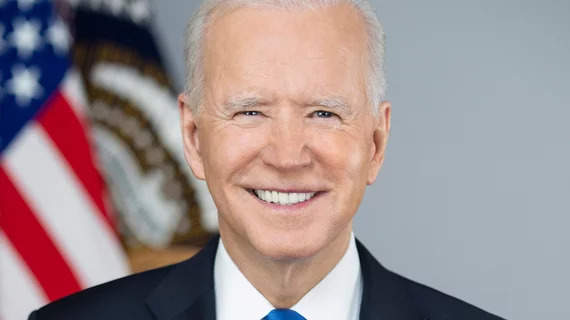The Biden administration just made it easier to repair medical devices—and imaging specialists are concerned
The U.S. Copyright Office has announced that independent service organizations (ISOs) can now access the technology within certain medical devices—including imaging equipment—to diagnose, maintain and repair them when necessary.
This exemption to the Digital Millennium Copyright Act (DMCA) comes nearly four months after President Joe Biden signed an executive order aimed at preventing manufacturers from limiting the independent repair of their products.
The Electronic Frontier Foundation, a vocal advocate for “the right to repair,” said in a statement to Engadget that this latest announcement was “a victory for security research, accessibility, education, preservation and repair.” However, the organization added, the DMCA exemptions still contains “unnecessary and harmful limitations.”
The Medical Imaging & Technology Alliance (MITA), meanwhile, shared its concerns about this latest shift in U.S. policy.
“If this recommendation is ultimately accepted and implemented, it would amount to a license for unregulated third-party servicers to hack sensitive technology, creating grievous cybersecurity and patient safety risks,” Patrick Hope, executive director of MITA, said in a statement. “Current intellectual property protections for original equipment manufacturers (OEMs) do not prevent ISOs from servicing equipment, and in fact, OEMs can service other manufacturers’ equipment without hacking into it. This recommendation would increase the risk of harm for patients and healthcare providers since third-party servicers are not regulated by the FDA. We intend to continue to advocate against this misguided approach.”

